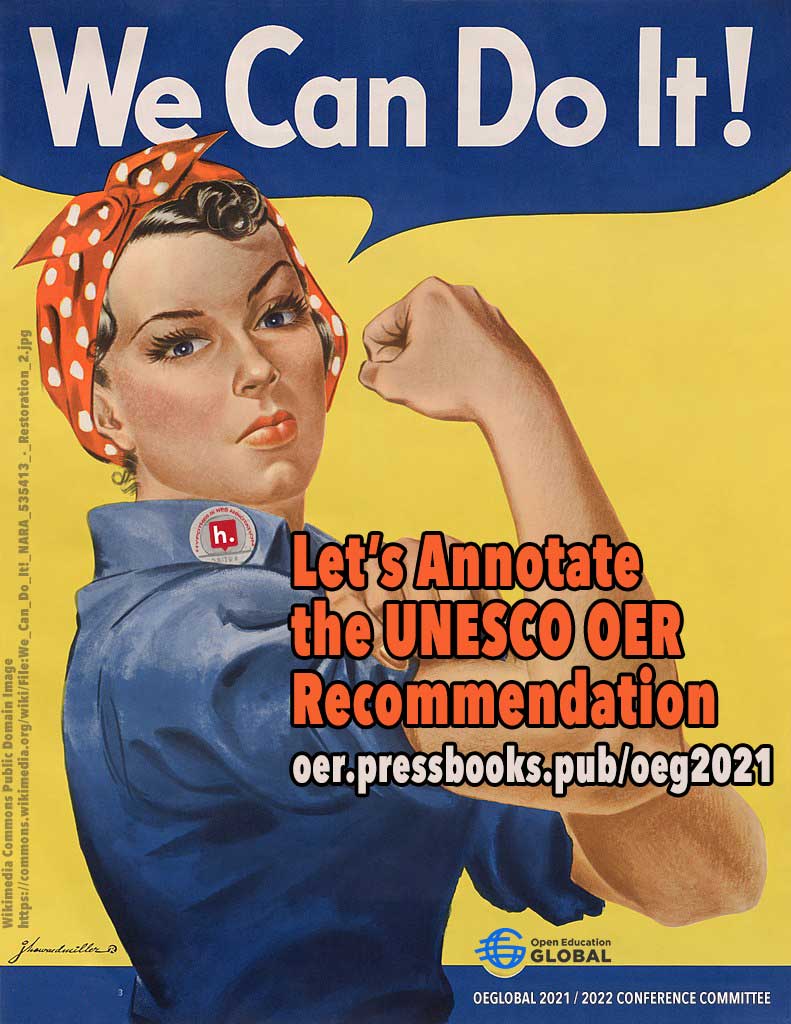(v) Promoción y fortalecimiento de la cooperación internacional
¿Cómo es la cooperación internacional de iniciativas de educación abierta en Latinoamérica? Este webinario, presentado en OEGlobal21, discute los beneficios y los retos de cruzar fronteras para participar en iniciativas internacionales. Tres enfoques diferentes:
- Informe y sitio web sobre el estado de las flexibilidades de derechos de autor en los países de América Latina
- Educación Libre y Soberanía Tecnológica: La necesidad de reabrir el debate sobre la dependencia tecnológica y los comunes
- Itinerarios abiertos de prácticas educativas ambientales: aportes desde Argentina
